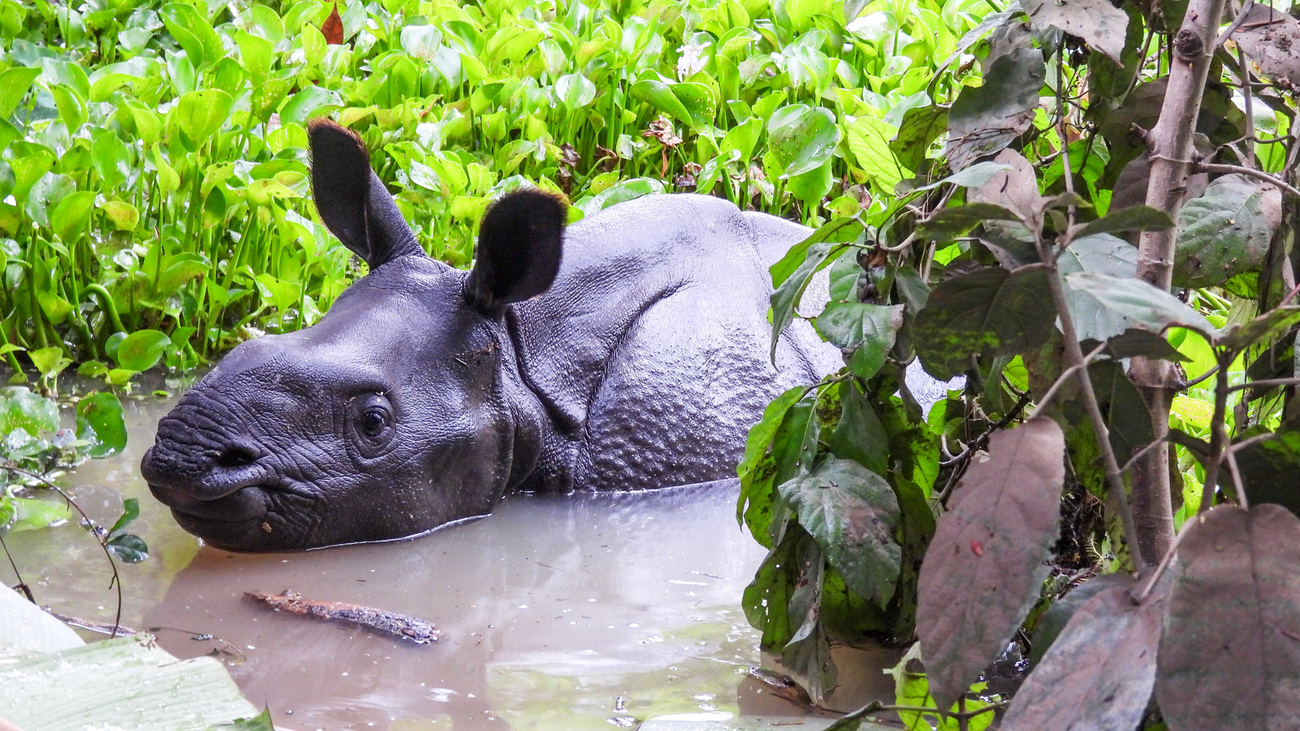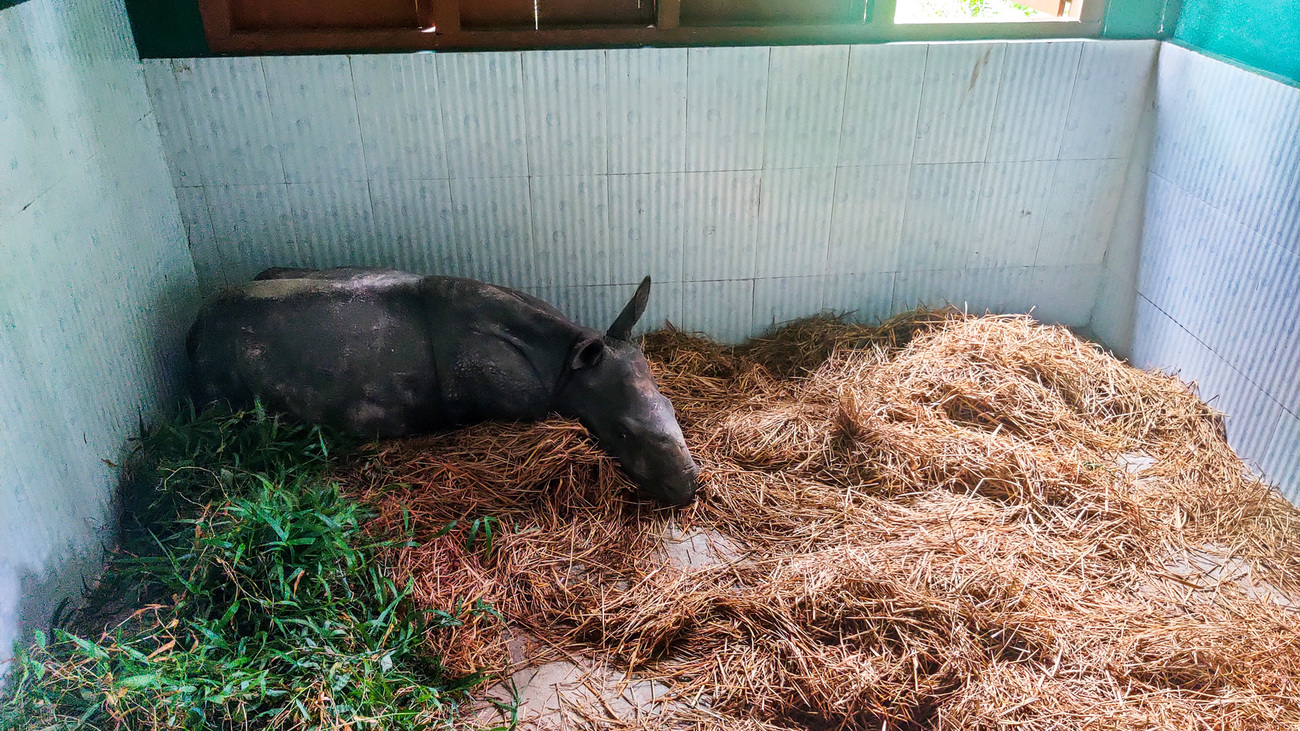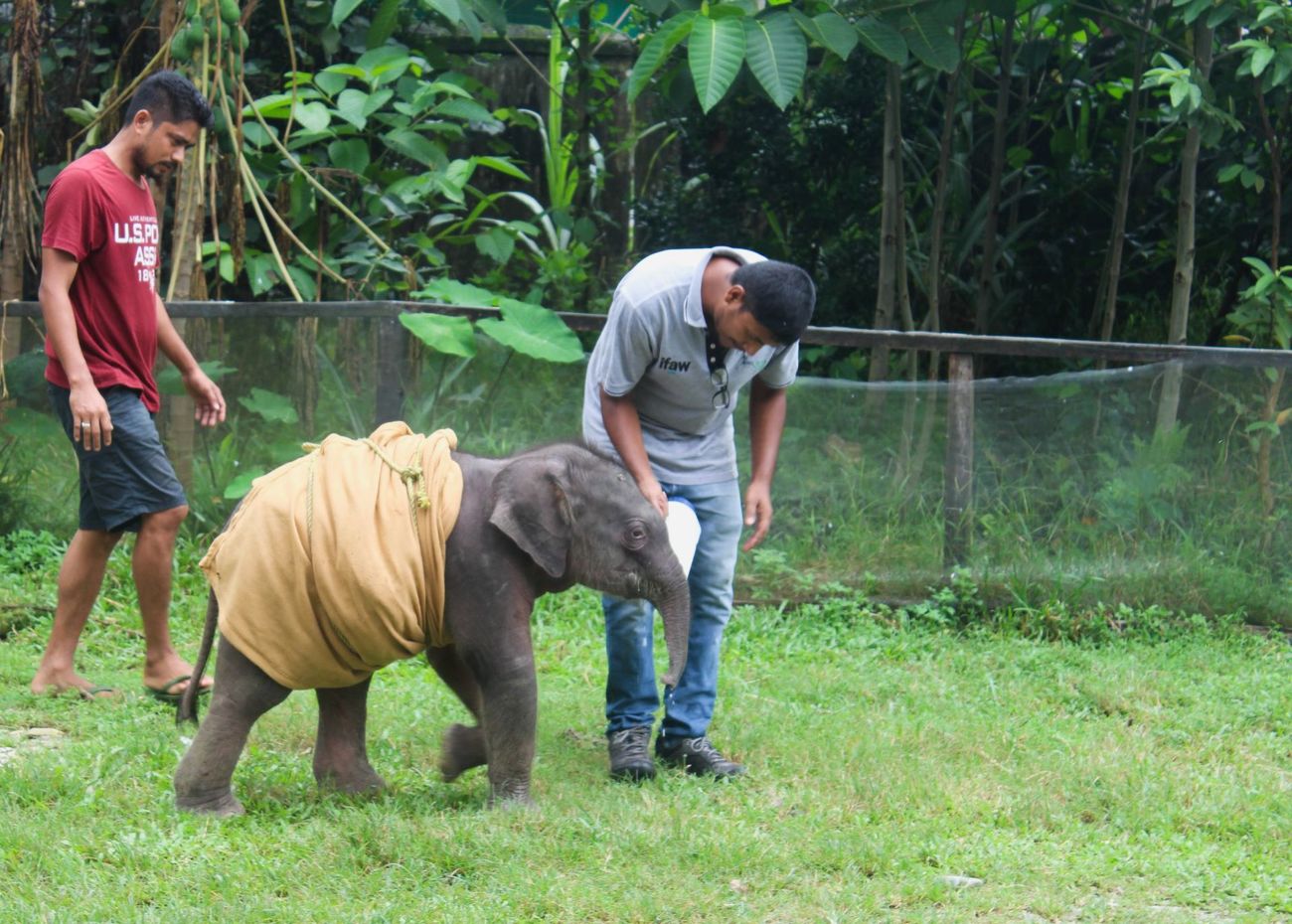Centre for Wildlife Rehabilitation and Conservation - India
Near Kaziranga National Park, animals are being threatened by a single highwayIFAW rescues wildlife as severe floods hit India’s northeast
IFAW rescues wildlife as severe floods hit India’s northeast
Two rhino calves and two elephant calves rescued from floodwaters in Assam, India
July 12, 2024
On 3 July 2024, the Wildlife Trust of India and IFAW’s Centre for Wildlife Rehabilitation and Conservation (CWRC) team rescued an elephant calf and an infant rhino calf from flooding in Assam, India. Both animals were transported to the centre, where they received veterinary treatment.
On 6 July, the team rescued another elephant calf from the floodwaters and transported it to the centre for rehabilitation. The same day, they rescued another young rhino calf who had been swept away by the water.

Located on the edge of the Eastern Himalayan biodiversity hotspot, India’s Kaziranga National Park is an important tiger reserve and a UNESCO World Heritage Site. The park is home to the world’s largest population of greater one-horned rhinos, which nearly went extinct by the turn of the century—2,400 greater one-horned rhinos in total live here. The park also houses large numbers of endangered Bengal tigers, Asian elephants, wild water buffalo, South Asian dolphins, and numerous bird species.
Officials have warned of even more rainfall, as water levels in the Brahmaputra River, which runs through the state, are expected to increase in the coming days.
Following the heavy rainfall, IFAW-WTI’s rescue team has been mobilised and are stationed in strategic locations to keep a look out and respond to injured, orphaned, and distressed wildlife. CWRC is also engaging volunteers in flood preparedness and awareness workshops at the centre.
Having handled nearly 4,500 wild animals with an almost 60% release rate since it launched in 2000, CWRC is the only facility in India specialising in the rescue, rehabilitation, and release of orphaned and injured wildlife.

IFAW has a long history of partnership with WTI, working together to repopulate Manas National Park with greater one-horned rhinos. We regularly work during the annual flood season to rescue and rehabilitate stranded rhino and elephant calves in Kaziranga, eventually releasing them back to the wild in Manas National Park.
One stranded calf we rescued in 2004, named Ganga, has now been roaming in the wild of Manas for a decade and a half. Recently, we celebrated the birth of her grand-calf.
IFAW on a mission to rescue injured and displaced animals
5 July 2024
This week, large parts of Kaziranga National Park in India's northeastern Assam state have been flooded posing a threat to wildlife and local communities.

Many wild animals have been swept away by the rising water levels. As wildlife seek refuge on higher grounds, they risk coming into conflict with human settlements, which can be fatal for animals and people.
In response to this crisis, IFAW, along with the Assam Forest Department and Wildlife Trust of India (WTI), is on a mission to rescue displaced or injured animals and prevent human-wildlife conflicts. IFAW-WTI's rescue team has been mobilised and are being stationed in strategic locations to help keep a look out and respond to wildlife rescues.
The IFAW-WTI Centre for Wildlife Rehabilitation and Conservation (CWRC) has admitted more than 36 animals that have been injured or displaced by the floods over the past few days. The new animals in the Centre’s care include two otter pups that were swept away by the floodwaters have been rescued from the Diphlu River in Kaziranga, as well as barred owls, sambar deer, and hog deer.
On 30 June, IFAW-WTI's Mobile Veterinary Service (MVS) in Western Assam assisted the Assam Forest Department in rescuing a month-old female elephant from Aie River in the Chirang district. Separated from her herd due to flash floods, the calf is currently receiving treatment until she’s ready to be released back to the wild.
The IFAW-WTI team is also training volunteer groups on flood rescue, which will enable these groups to assist our rescue teams in the coming days as we continue to respond to wildlife in distress.
Related content
Our work can’t get done without you. Please give what you can to help animals thrive.